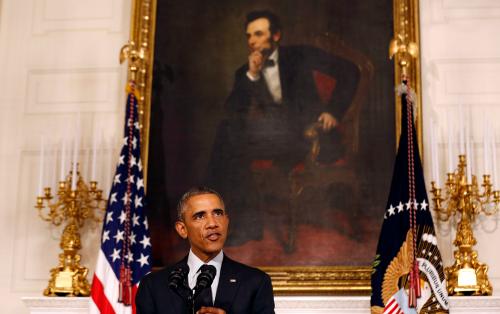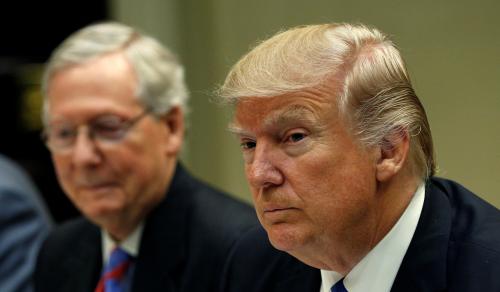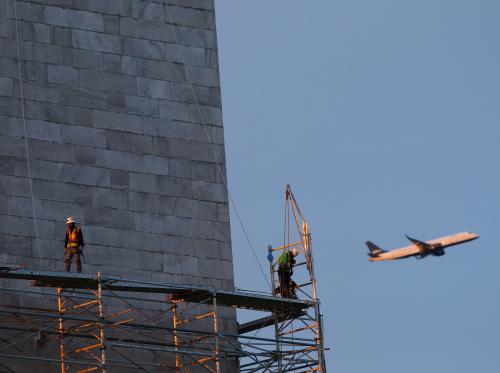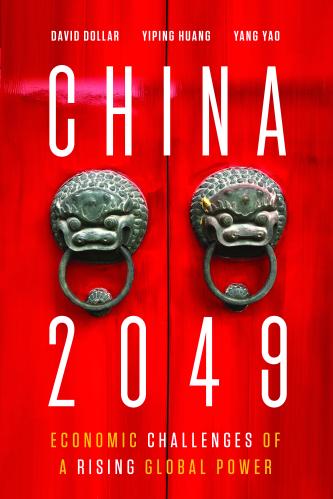“This has been amateur hour at the White House,” Elaine Kamarck said at a panel of Brookings experts on President Trump’s first 100 days, part of Brookings’s eighth annual A. Alfred Taubman Forum on Public Policy. She was joined by Brookings Governance Studies scholars William Galston, Nicol Turner-Lee, and John Hudak, in a discussion moderated by Karen Tumulty of the Washington Post.
It’s unlikely that Donald Trump, with no prior experience in the public sector, will be able to fulfill his campaign promises, Kamarck said. What makes him different from someone like Bill Clinton, whose first hundred days were also very fraught, is that he didn’t come in with any government expertise and he hasn’t shown an interest in learning. Answering a question about Trump’s bully-like style, Kamarck described it as something he resorts to—as in the case of the AHCA—because he lacks knowledge on the substance of many issues. He couldn’t bully his way through the health care debate and was taken aback by the issue’s complexity, Kamarck said, and she predicted that he will face the same problems with tax reform.
Part of Trump’s difficulty making policy comes from assuming that everything is negotiable, William Galston said. The brick wall he encountered in negotiating health care proved that this isn’t always true. The Freedom Caucus has real limits on what they are willing to do. But Galston emphasized that it’s difficult to characterize a whole presidency based only on the first 100 days: “Presidents who avoid early stumbles are the exception, not the rule.” Galston went on to say that Trump can declare victory on almost anything, but what really matters is whether those claims are credible—the risk is that the president’s own perception drifts from the perception of everyday Americans.
Nicol Turner-Lee remarked on major problems in the executive branch, where the president’s policies are carried out. The autonomy and effectiveness of agencies have been threatened by heightened politicization, and by the continued vacancies in agency leadership positions, she said. Together, Turner-Lee noted that these changes threaten the government’s ability to attract and retain knowledgeable people. Contrasting President Trump with President Obama, she said that Obama ran on a sweeping vision even as people were also very critical of his lack of experience. But what distinguished him was that he was effective at bringing in experts to help him learn about areas where he lacked expertise. That was a sign of personal discipline and management skill, Turner-Lee said—something we are not seeing from Trump.
A lack of experience will not necessarily lead to failure on its own, John Hudak noted, but the answer to that inexperience is to bring in more seasoned people and staff up the executive branch as quickly as possible. President Trump clearly did not understand the size of the appointed workforce in the executive branch—over 4,000—and the power those appointees have, Hudak said. Leaving positions empty will make it impossible for him to follow through on his campaign pledges. Hudak predicted that when President Trump looks back in a year or two, and things are not moving forward, it will be because of a lack of capacity. Hudak granted that the number of appointments is too extensive to handle in the first 100 days, but said the total lack of movement is “malpractice,” and a disservice to those who voted for the president.










Commentary
Team Trump lacks the experience to fulfill promises
April 24, 2017